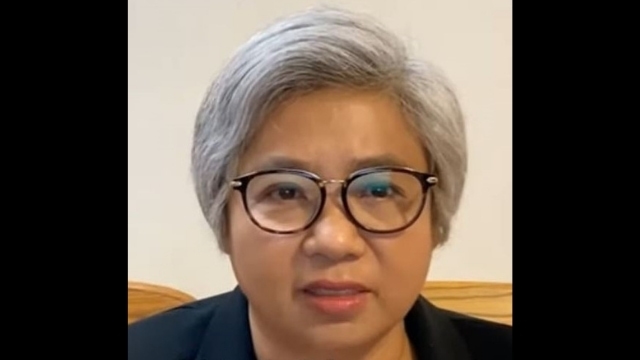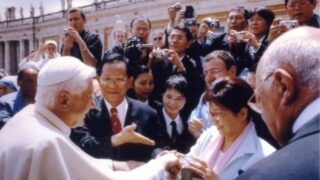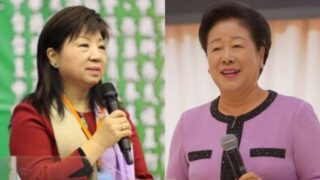An international webinar on May 24 examined different features of the administrative persecution of the Taiwanese movement.
by Alessandro Amicarelli


The webinar “Dialogue, Diversity, and Freedom: Reacting to the Tai Ji Men Case” was organized by CESNUR and Human Rights Without Frontiers on May 24, 2021. This webinar was part of the events organized by NGOs for the 2021 United Nations World Day for Cultural Diversity for Dialogue and Development, which was commemorated on May 21. It was part of the monthly webinars on the Tai Ji Men case that Bitter Winter supports.
Camelia Marin, of the NGO Soteria International, introduced the webinar and mentioned the cultural activities of Dr. Hong Tao-Tze, shifu (Grand Master) of Tai Ji Men, in promoting a culture of peace, love, and the heart, including in connection with the UN World Day for Cultural Diversity. She mentioned the symbolic importance of the heart in all cultures, quoting French esoteric author René Guénon. She also introduced videos where the highest authorities of Taiwan, including different Presidents, and other countries, and high police officers, praised Dr. Hong’s activities.


Daniela Bovolenta from Bitter Winter mentioned how the World Day for Cultural Diversity was created to commemorate the shameful destruction of the Buddhas of Bamiyan in Afghanistan by the Taliban in 2001, an event that symbolized the intolerance of diversity and spiritual pluralism. When minorities are attacked, their visual symbols are destroyed. In Taiwan, Bovolenta said, “Taliban of the Tax Office” and “Taliban of the Administrative Enforcement Agency” attacked land belonging to Dr. Hong and intended for a self-cultivation center as a visual symbol of their intolerance of Tai Ji Men.
Massimo Introvigne, an Italian sociologist of religions and the editor-in-chief of Bitter Winter, discussed how rogue tax collectors, known to those who read the Gospels as the dreaded “publicans” of Jesus’ time, created widespread distrust in the state and the tax system during the last centuries of the Roman Empire. This eventually became a key factor in the Empire’s collapse. The Tai Ji Men story, Introvigne said, is basically a story of publicans, rogue tax and enforcement bureaucrats that, like the publicans of Roman times, care more for their power and bonuses than for the rights of taxpayers and citizens. The Roman case shows that, rather than making countries richer, such practices make them poorer, and may even end up destroying them.
Willy Fautré, co-founder of Human Rights Without Frontiers, told the story of how Tai Ji Men, starting from 2017, went from victims to activists, actively promoting taxpayer rights with the Tax Legal and Reform League, which was co-founded by distinguished scholars and academics. Rather than just trying to redress their own case, Tai Ji Men dizi (disciples) cooperated with some of the best experts in the country to call for an in-depth reform of the tax system in Taiwan. One of the League’s proposals is to eliminate the tax bonuses for bureaucrats.
I then introduced several witnesses with direct experience of the Tai Ji Men case. I mentioned the Greek principle of isonomia (isonomy), or equality before the law, which is theoretically proclaimed in Taiwan but in the Tai Ji Men case was not applied. This, I observed, is shocking considering how Tai Ji Men and Dr. Hong have been praised by presidents and other authorities in Taiwan as good and in fact model citizens, and effective ambassadors of Taiwanese culture internationally, yet their human rights have been seriously violated.
A video was shown about the sad story of the Swiss Mountain Villa, a beautiful residence built by Dr. Hong for Tai Ji Men, confiscated in 1997 and given back by the authorities in 2020, in a destitute and dilapidated state.
Jim Chang, vice-president of the Taiwan Jury Association, shared his experience as attorney for Ms. Huang, a volunteer from the Tax and Legal Reform League who was illegally detained by the police for participating in the tax and legal protests on September 19, 2020, and holding a sign questioning a bureaucrat how much bonus she received. The case, Chang said, was not about Ms. Huang only. Her lawyers intervened to make sure that such abuse of police authority is not repeated in the future.
Jason Cherng, a small and medium enterprise consultant in Taiwan and former visiting researcher at the Massachusetts Institute of Technology, told the story of his volunteer work with Dr. Hong, including at the Sydney Olympics, to bring internationally a message of peace, love, and conscience. Rather than lauding this important international mission, Taiwan authorities failed to stop the administrative persecution of Dr. Hong and Tai Ji Men, and to discipline Prosecutor Hou Kuan-Jen who instigated it. Yet, Dr. Hong continued to tell dizi to “face everything with joy.”


Lin Zhi-gong, a physician at Taiwan General Hospital, used his medical experience to describe Taiwan’s moral and political crisis as a disease. The Tai Ji Men case, he noted, exposed the viruses of Taiwan’s distorted tax system and corrupted bureaucracy. Like a cancer, they grow and destroy the harmony and well-being of the country. Tai Ji Men, he said, do not fight for themselves only, but for their country and even the world, as similar problems exist in several countries.
Erica Wu, a 19-year-old student at the Dubai campus of New York University, offered a personal testimony of how, by traveling around the world to promote love and peace and participating in international Tai Ji Men cultural events, she came to cherish and appreciate diversity. The same did not happen in Taiwan, where the tax persecution shows that people’s rights to culture are not well protected.
Jason Lu, director in an electronic company in San Jose, California, reported how he moved from Taiwan to California, a state where inclusiveness and diversity are celebrated. Today the same values are proclaimed in Taiwan. However, he said, it is easier to be tolerant and inclusive in words than in practice. The injustices vested on Tai Ji Men show that there is still much to improve. Protests are necessary, but small acts of kindness towards those who are different from us are the first step to promote a culture where diversity is respected.
Nu Tun is a caregiver from Myanmar currently living in the United States. From her early experience in Myanmar to the current COVID-19 crisis, she described the problems created by social conflict and anger, and how joining Tai Ji Men and practicing qigong helped her cope with difficulties. She was surprised when she learned that in Taiwan Tai Ji Men, despite being recognized and praised as a socially useful organization, was consistently mistreated and discriminated against by governmental bureaucrats.


Marco Respinti, an Italian journalist who serves as director-in-charge of Bitter Winter, concluded by stating that Tai Ji Men dizi are not enemies of Taiwan government. Indeed, they love their country. They only believe that respecting their cultural diversity would create a more harmonious Taiwanese society, and improve the international image of Taiwan.










